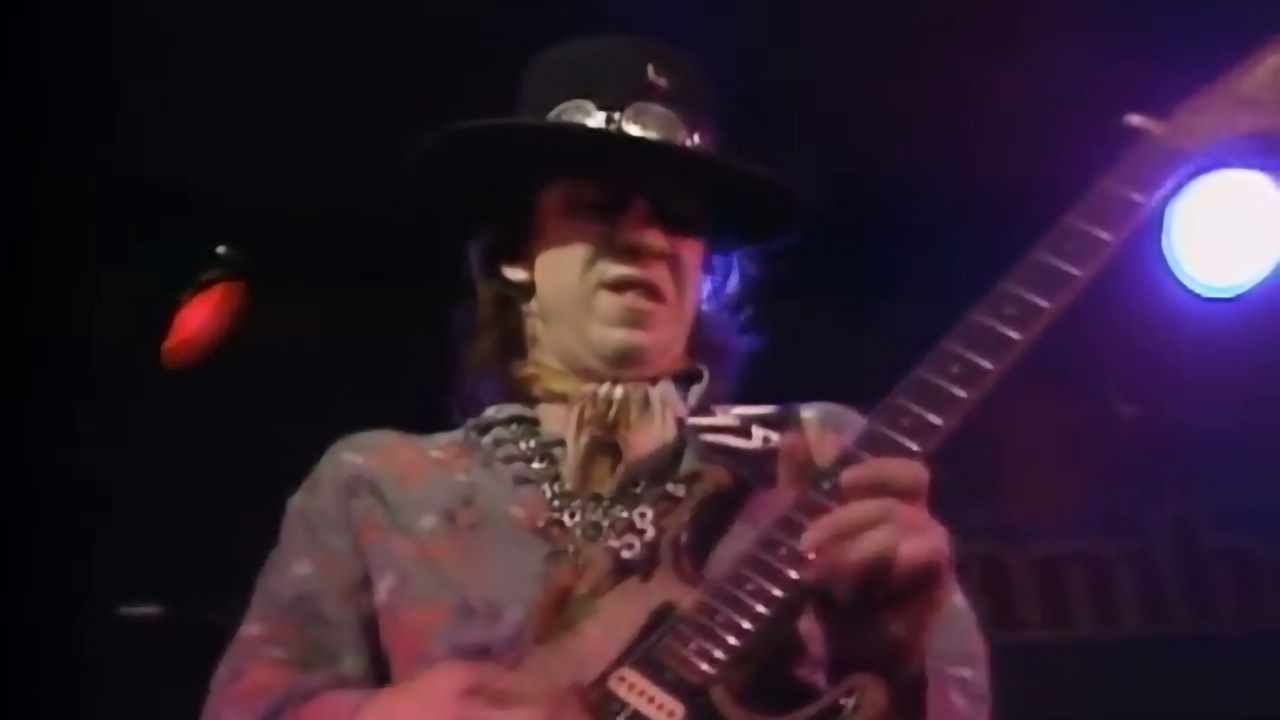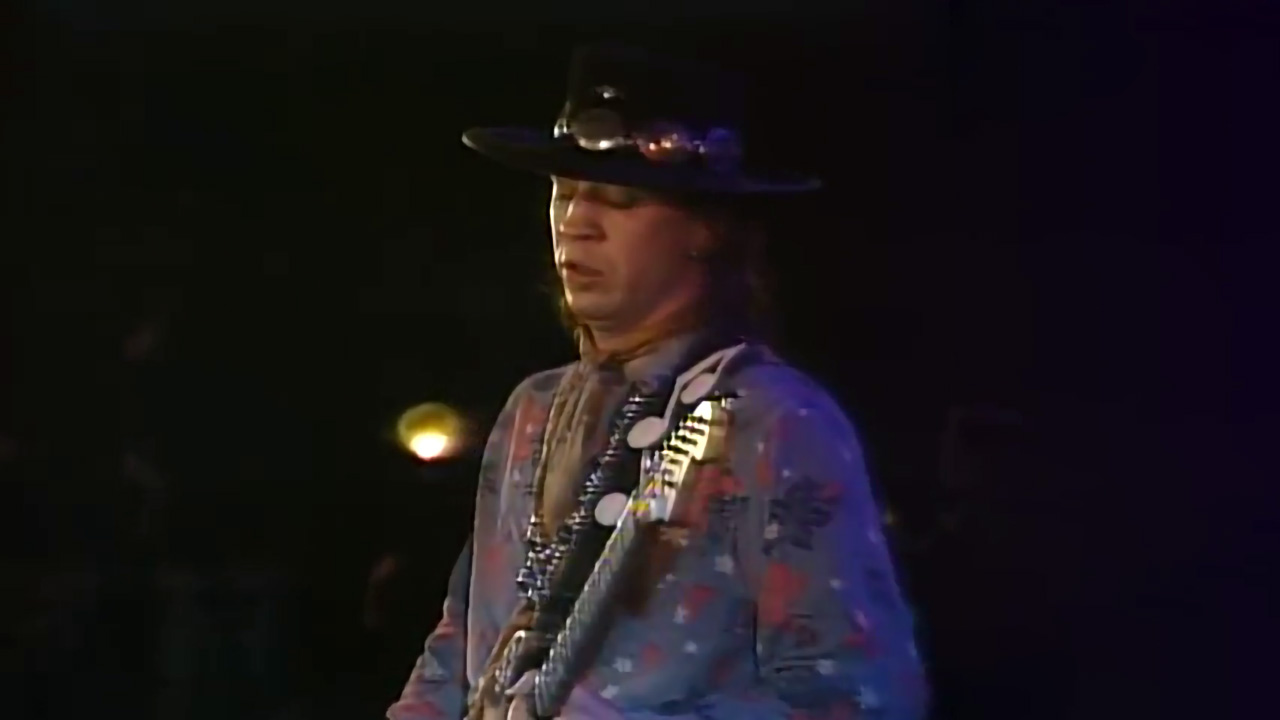Rui Cardo Suggestions presenta grandi classici e perle nascoste, versioni ufficiali e live ricercati.
Enjoy! 😉
Stevie Ray Vaughan and Double Trouble - Testify
Song
"Testify" is an uptempo soul song by the American rhythm and blues group the Isley Brothers. Written by the Isleys and recorded in 1964, it followed several successful singles by the group and was the first single to appear on their own T-Neck record label.
Music critic Richie Unterberger describes "Testify" as "a delightful track, one that worked as a both an out-and-out raver and a novelty", praising it as "tremendously exciting uptempo soul music". Jimi Hendrix provided the guitar parts, which Unterberger identifies as one of the best examples of his pre-Experience recordings.
Lyrics and composition
The practice of "testifying" is used in churches in the American South to express belief in Christian faith and experiences. For their song, the Isleys parody the practice:
Brothers and sisters and to all this song may concern, if you want to have some soul, if you want to be a witness I want you to listen while I testify ... All it takes is a rhythm in your feet, don't worry about the music baby, you gotta have a beat, now you got soul"
During the song, others are called upon and testify briefly, including "Raymond, the genius, Ray", "James from Augusta, Georgia", "our friend Stevie", "another friend that lives in Detroit called Jackie", and "across the water ... them cats with long hair". The Isley Brothers respond, imitating the singing styles of Ray Charles, James Brown, Stevie Wonder, Jackie Wilson and the Beatles.
Ronald Isley provides the lead vocals, with Rudolph Isley and O'Kelly Isley Jr. supplying the background vocals. Due to its length of nearly six minutes, "Testify" was split into two parts for release as a single. Although it missed the record charts, it later gained wider exposure as one of the first recordings featuring guitarist Jimi Hendrix.
Hendrix involvement
The Isley Brothers were one of the first groups that Hendrix recorded and toured with after relocating to New York's Harlem neighborhood from Nashville, Tennessee. Hendrix biographer Harry Shapiro describes his guitar parts for the song as "churning, hard-hitting rhythm chords and fluid blues-inspired solo breaks". Unterberger notes Hendrix's "spindly, roving electric guitar" in the opening section, and about ten seconds of "really wild, unhinged R&B soloing" later in the track. In 2010, "Testify" was included on the Hendrix compilation West Coast Seattle Boy: The Jimi Hendrix Anthology, along with several other of his pre-Experience recordings.
American blues guitarist Stevie Ray Vaughan recorded the song for his 1983 debut album Texas Flood. Music writer Brad Tolinski calls it
"More a tip of the hat than a cover ... one of Vaughan’s very best performances".
Album
Texas Flood è il primo album in studio del chitarrista statunitense Stevie Ray Vaughan, pubblicato nel 1983 dalla Epic Records.
È l'album che fa conoscere al mondo il chitarrista texano, piazzandosi nella Top 40 delle classifiche di vendita degli USA e rimanendoci per mesi. È anche il disco che, alla sua uscita, riporta in auge il blues dopo anni di lontananza dal mainstream.
Artist
Stephen Ray Vaughan, detto Stevie (Dallas, 3 ottobre 1954 – East Troy, 27 agosto 1990) è stato un chitarrista, cantante e compositore statunitense.
Annoverato tra i più dotati e influenti esponenti del blues statunitense, sebbene a causa della prematura scomparsa abbia pubblicato solo quattro album in studio e un live, nel 2011 Rolling Stone lo ha classificato al dodicesimo posto nella sua lista dei cento migliori chitarristi di sempre mentre Classic Rock Magazine lo ha inserito al terzo posto nella sua lista 100 Wildest Guitar Heroes nel 2007.
Gli ultimi anni
Il 1985 è per Vaughan l'anno del ritorno al Festival di Montreux, questa volta nelle vesti di acclamata star internazionale. Lo show tenuto il 15 luglio è di grande intensità ed è particolarmente degna di nota la versione del brano Tin Pan Alley, suonata in coppia col bluesman Johnny Copeland.
L'esibizione di Montreux, presente sull'album Blues Explosion, lo porta anche alla vittoria di un Grammy Award e il tour promozionale di Soul to Soul giunge in Svizzera, Francia, Paesi Bassi, Finlandia, Svezia e Giappone; il 14 luglio 1985 si esibisce per la prima volta anche in Italia, all'Umbria Jazz Festival di Perugia.
In questo periodo partecipa anche ad album di altri artisti quali Texas Twister di Johnny Copeland e Gravity di James Brown nel 1986, I'm in the Wrong Business di A.C. Reed nel 1987, Soulfull Dress di Marcia Ball nel 1984 e Strike Like Lightning del suo idolo giovanile Lonnie Mack nel 1985.
Intanto l'abuso di alcol e droghe mina pesantemente il fisico di Vaughan, che durante una tappa del tour in Germania nell'ottobre del 1986, viene colto da un collasso: il ricovero in ospedale e il successivo periodo di disintossicazione in un centro della Georgia lo tengono lontano dalle scene per quasi due mesi. Sul finire del 1986 esce Live Alive, il primo album live dell'artista, che raccoglie alcune delle migliori esibizioni dell'estenuante tournée del periodo precedente e alcuni inediti, riscuotendo anch'esso un buon successo.
Nel 1987 divorzia dalla moglie e in seguito si fidanzerà con la modella Janna Lapidus, conosciuta in Nuova Zelanda.
Il tour con Jeff Beck
Nel gennaio del 1987 inizia un interminabile tour americano che durerà fino al 1988, buona parte svolto assieme al chitarrista Jeff Beck, con una breve interruzione solo per il mese di ottobre 1987. Tra giugno e luglio 1988 il tour fa tappa in Europa e Vaughan torna ancora ad esibirsi in Italia: il 3 luglio è a Pistoia per il Pistoia Blues Festival, il 4 luglio è a Milano al Palatrussardi, il 6 luglio suona all'Arena Alpe Adria di Lignano Sabbiadoro, il 7 luglio è di nuovo a Milano per lo Hiotfin Festival e infine è a Salerno per il II Festival internazionale del Blues di Salerno l'8 luglio.
Il ritorno in studio nel 1989 coincide con l'uscita dell'album In Step, con cui vince un Grammy Award nella categoria Best Contemporary Blues Record, grazie anche al record raggiunto di più di un milione di copie vendute.
Pur rimanendo il blues una delle componenti più importanti del suo stile, il disco denota un'ulteriore flessione verso il rock melodico, distanziandosi sempre più dalle sonorità grezze di inizio carriera. Nel 1990 Stevie collabora con suo fratello Jimmie al disco di Bob Dylan Under the Red Sky, che uscirà postumo, e incide con Jimmie anche l'album Family Style, prodotto da Nile Rodgers, a sua volta pubblicato dopo la morte e poco acclamato da critica e pubblico.
Nel gennaio dello stesso anno partecipa a MTV Unplugged, registrando in versione acustica con una chitarra a dodici corde i brani Rude Mood, Pride and Joy, Testify e Life Without You, che interrompe dopo pochi accordi incalzato dal pubblico che chiede a gran voce di ripetere Testify: questa rappresenta una delle poche registrazioni conosciute in cui Stevie imbraccia una chitarra acustica. Durante tutta la prima metà dell'anno effettua un intenso tour negli Stati Uniti con Joe Cocker.
L'incidente mortale
La notte del 27 agosto 1990, dopo aver partecipato assieme a Eric Clapton, Robert Cray, Buddy Guy e il fratello Jimmie a un grande concerto all'Alpine Valley Music Theater di Alpine Valley Resort, vicino a East Troy nel Wisconsin, Stevie salì su un elicottero per tornare in albergo a Chicago.
Vaughan, stanco per il concerto, chiese al fratello di prendere l'unico posto rimasto libero e partire prima, poiché tre posti, inizialmente riservati a Jimmie, sua moglie e lo stesso Stevie erano già stati occupati da altri membri dello staff di Eric Clapton. Poco dopo il decollo, il velivolo si schiantò contro una collina a causa della fitta nebbia e della poca esperienza del pilota in simili condizioni atmosferiche.
Nessuno si accorse dell'incidente fino alla mattina seguente, allorché l'elicottero non giunse a destinazione. Nell'incidente, oltre allo stesso Vaughan, morirono il pilota Jeff Brown e tre membri dello staff di Clapton: Bobby Brooks, Nigel Browne e Colin Smythee.
Vaughan fu sepolto il 31 agosto 1990 al Laurel Land Memorial Park di Dallas accanto al padre, morto il suo stesso giorno quattro anni prima.

alcuni estratti sono presi da Wikipedia - alcuni testi delle canzoni che non sono scritti e tradotti personalmente sono prelevati dal web da siti come lyricfind, musixmatch

